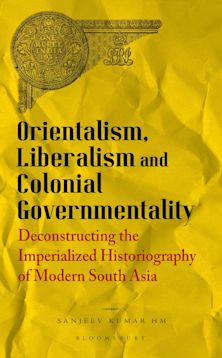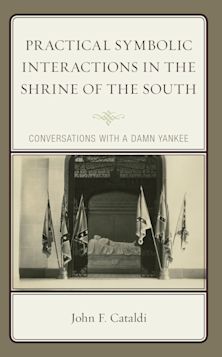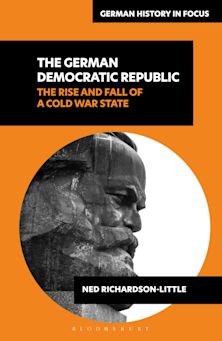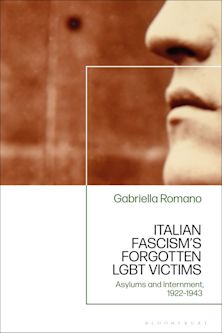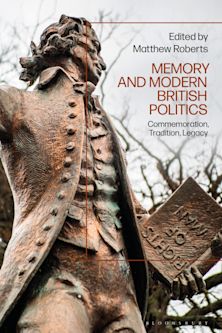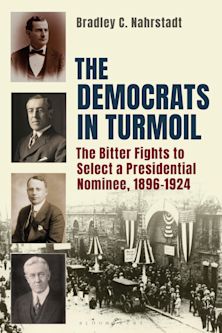- Home
- ACADEMIC
- Politics & International Relations
- Political History
- Flannery O’Connor and the Perils of Governing by Tenderness
Flannery O’Connor and the Perils of Governing by Tenderness
Flannery O’Connor and the Perils of Governing by Tenderness
This product is usually dispatched within 1 week
- Delivery and returns info
-
Free CA delivery on orders $40 or over
You must sign in to add this item to your wishlist. Please sign in or create an account
Description
Flannery O’Connor’s fiction continues to haunt American readers, in part because of its uncanny ability to remind us who we are and what we need. Foss’s book reveals the extent to which O’Connor was a serious reader of the history of political philosophy. She understood the ideas upon which the American regime rests, and she evaluated those ideas from the standpoint of both faith and reason. Foss’s book explains why O’Connor feared that the modern habit to govern by tenderness would lead to terror.
After a thorough account of her familiarity with the history of political philosophy, Foss shows how the works of Plato, Aristotle, Saint Augustine, Saint Thomas Aquinas, Machiavelli, Locke, Rousseau, and Nietzsche inform O’Connor’s stories. This does not mean that O’Connor was writing about politics in the narrow sense. Her vision was deeply theological, and she carefully avoided topical stories that promote social agendas. Her concern was with the health of the American regime more broadly, insofar as the manners of a regime affect citizens’ attitudes toward religion. O’Connor does not present a political theory of her own, but as Foss argues, she was a political philosopher in the original sense of the word. Her stories give clear accounts of her political wisdom. Foss further shows the continued relevance of her wisdom in age dominated by abstract modern theories, such as that of John Rawls.
Table of Contents
2. The Ancient View of Politics
3. The Intelligent Holiness of the Medieval Mind
4. The First Modern Man: The Master of Things
5. The Second Modern Man: Caught in a Maze of Guilt
6. The Third Modern Man: Feeling About for the Lost God
7. Returning to the Source of Tenderness
8. Concluding Reflection: Motes and Rawls in America
Product details
| Published | Jan 03 2019 |
|---|---|
| Format | Hardback |
| Edition | 1st |
| Extent | 200 |
| ISBN | 9781498532594 |
| Imprint | Lexington Books |
| Dimensions | 231 x 160 mm |
| Series | Politics, Literature, & Film |
| Publisher | Bloomsbury Publishing |
About the contributors
Reviews
-
One temptation in analyzing O’Connor is to use her work to demonstrate the Catholic worldview that mysteriously informs her fiction, a tendency both encouraged and thwarted by her own wry, acute commentaries on fiction and faith. In Flannery O’Connor and the Perils of Governing by Tenderness, Foss makes this risk an opportunity to summarize Augustinian and Thomistic theology, especially the latter’s synthesis of Christian revelation with classical notions of reason and political life.
Choice Reviews
-
One of the cardinal virtues of Foss’s work is the attention he pays to O’Connor’s correspondence, papers, and personal library. . . Foss clearly spent a great number of hours going through these documents with detail, scrutinizing annotations, highlights, and marginalia to offer readers a sense of precisely what sources O’Connor was familiar with during the course of her life. . . . In all, Flannery O’Connor and the Perils of Governing by Tenderness should be considered by any lover of O’Connor and the philosophic tradition, or more broadly, any friendly critic of American democracy and its liberal order. Its prose is accessible to the intelligent and patient reader, and Foss does a good job summarizing the stories he leverages so that one need not be an O’Connor expert to appreciate his points. He whets the appetite for O’Connor’s storytelling, rather than filling it, sending readers back to the source so that they can rediscover her anew. In this regard, Flannery O’Connor and the Perils of Governing by Tenderness seems to carry forward O’Connor’s intent of helping the disquieted modern American reader better understand himself and the political community in which he lives.
VoegelinView
-
[I]n addition to being a fascinating and illuminating read, Jerome C. Foss’ Flannery O’Connor and the Perils of Governing by Tenderness should be greeted as a service to the discipline at large. Seasoned O’Connor scholars and casual readers alike will find treasures aplenty in Foss’ lively and engaging text, and political theorists who have long admired O’Connor but struggled to find a place for her in our research and syllabi will discover seemingly endless fruitful pathways for engagement with her work. . . . Through his insightful readings of these peculiar and delightful stories alongside the history of political thought, Foss’ book offers rewards not only to those familiar with O’Connor’s work, but also to teachers and students looking for a new interlocutor to put in conversation with the familiar voices of Western political thought. . . Whether readers seek out Flannery O’Connor & the Perils of Governing by Tenderness for its insightful reading of O’Connor’s works or for its tour through the history of political philosophy with a wise and charming peacock farmer for a traveling companion, there is much to be gained from time spent with Foss’ very fine book.
VoegelinView
-
Readers may be wary of a book that baptizes a literary saint into a political fount; however, Foss does not align Flannery O’Connor with any ideological camp or reduce her fiction to morals on political life. Rather, he mines her stories for obvious gems that we too often overlook: references to Machiavelli and Heidegger, for instance, that bring O’Connor into ongoing conversations about the role of human beings within their polity. In Foss’ reading, O’Connor is still a hillbilly Thomist, but her religious philosophy has much to say about our politics.
Jessica Wilson, John Brown University
-
Foss’s study is a welcome breath of fresh air and an important addition to O’Connor studies, and none too soon. In our present age of competing political ideologies, this book serves a dual aim for two kinds of readers: to introduce those familiar with O’Connor to a deeper appreciation of the political significance of her work; and to introduce those more interested in political philosophy to the corrective that O’Connor’s emphasis on incarnational truth demands. Foss’s excellent study addresses an obvious lacuna in O’Connor scholarship (how could we have missed it?), and at the same time reminds us that, as theories go, they only finally matter if they translate to the world of flesh and blood. As Foss rightly suggests in his assessment of O’Connor, to separate concerns of faith from the concerns of the polis does an injustice to both.
Michael Bruner, author of A Subversive Gospel: Flannery O'Connor and the Reimagining of Beauty, Goodness, and Truth
-
By revisiting Flannery O’Connor’s eclectic bookshelves and acknowledging her expansive intellect, Dr. Foss convincingly argues that O’Connor’s stories project a significant understanding of the history of political philosophy, from Plato to Heidegger. O’Connor’s well-documented quest to understand her faith through fiction brings her in stories into dialogue with classical, medieval, and modern schools of political thought. A valuable read.
Christine Flanagan, author of The Letters of Flannery O'Connor and Caroline Gordon

ONLINE RESOURCES
Bloomsbury Collections
This book is available on Bloomsbury Collections where your library has access.

















